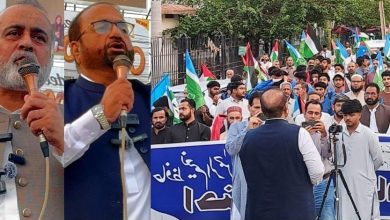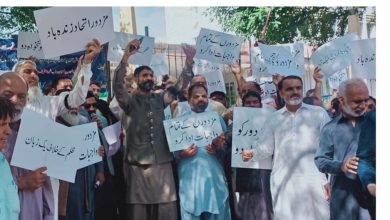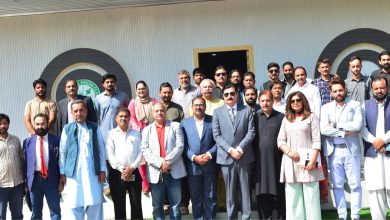Advancing Metabolomics AI in Diagnostic Testing

The OIC Standing Committee on Scientific and Technological Cooperation (COMSTECH) hosted an international workshop in Islamabad focused on metabolomics as an emerging AI-enabled tool for diagnostic testing, drawing more than 200 participants both in person and online.
Prof. Dr. M. Iqbal Choudhary, Coordinator General of COMSTECH, opened the session and highlighted the accelerating role of artificial intelligence across scientific fields, particularly its potential to transform biomedical research, clinical diagnosis and healthcare delivery in member states.
The keynote was delivered by Mr. Javed Iqbal Khan, a forensic scientist and biochemist with over three decades of experience in the United States. Mr. Khan holds MSc degrees in Biochemistry and Molecular Biology from the University of California, Riverside (1994) and in Biochemistry with Microbiology from the University of Agriculture, Faisalabad (1982). He has served as a forensic scientist at the California State Department of Justice, testified in over 500 legal cases, and currently advises as a scientific and forensic consultant with AIEG and the Utah State Attorney General’s Office.
In his lecture Mr. Khan explained the principles of metabolomics and positioned it as a critical, dynamic layer within the broader molecular landscape. He noted that only about 7% of cancers are hereditary, with the majority linked to environmental and lifestyle factors, and used the “Pyramid of Life” model to show how genomics and proteomics connect to metabolomics—the most responsive level to diet, environment and physiology. The presentation emphasized how Metabolomics AI can read these dynamic signals to improve diagnostic precision.
Speakers and participants discussed practical applications of Metabolomics AI for earlier disease detection, personalized treatment planning and improved clinical outcomes through data-driven precision medicine. The interactive question-and-answer session covered challenges of integrating large-scale metabolomic data, interpretation with AI tools, and pathways for adoption within healthcare systems, with particular attention to capacity building for Pakistani researchers and clinicians.
In closing, Dr. Ismalia Diallo, COMSTECH Regional Advisor for OIC-Africa, said the workshop deepened understanding of metabolomics’ role in diagnosing and treating diseases such as cancer and reiterated the influence of environment and diet on disease onset. The event concluded with formal acknowledgments and a networking hi-tea that allowed participants to explore collaboration and research opportunities aimed at bringing Metabolomics AI into practical use across the region.




